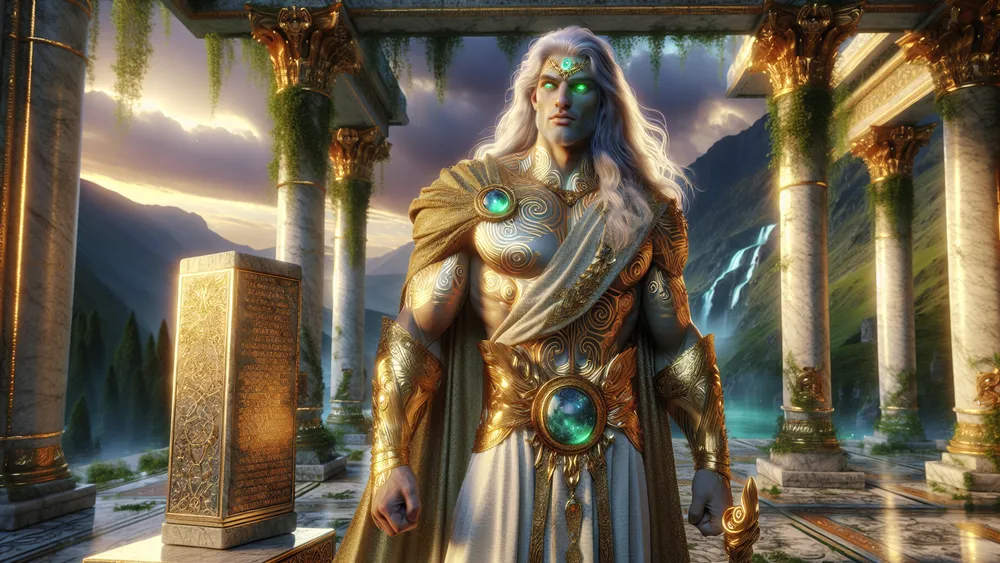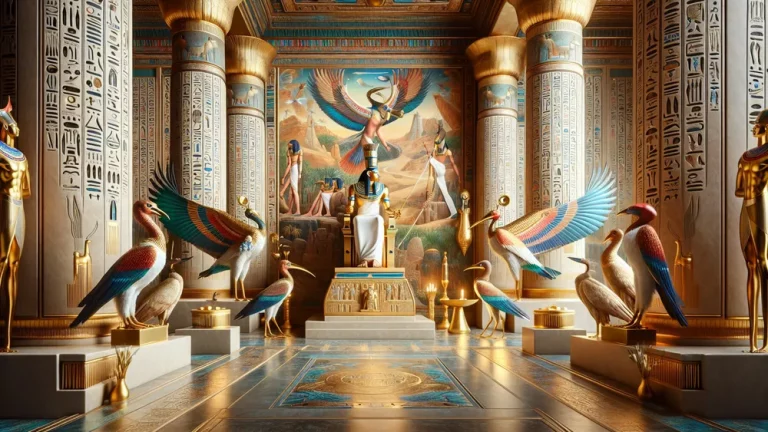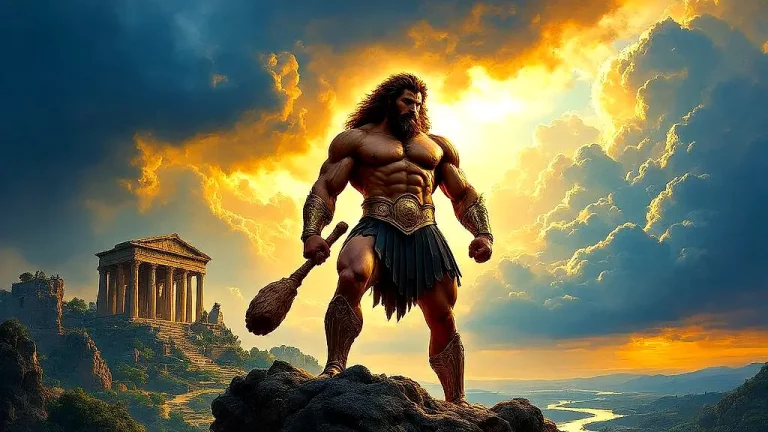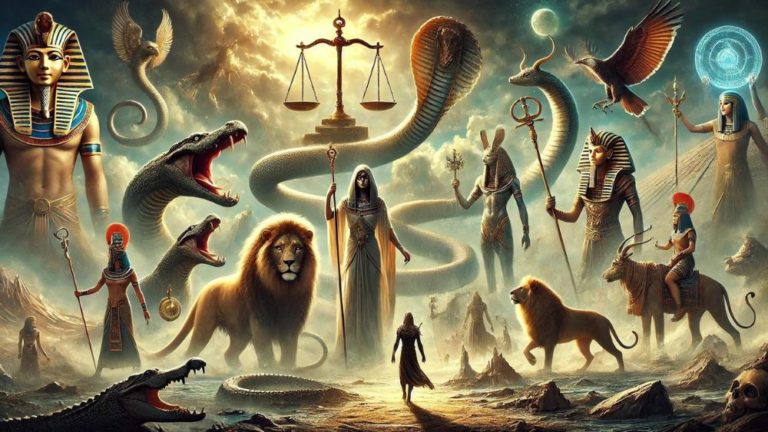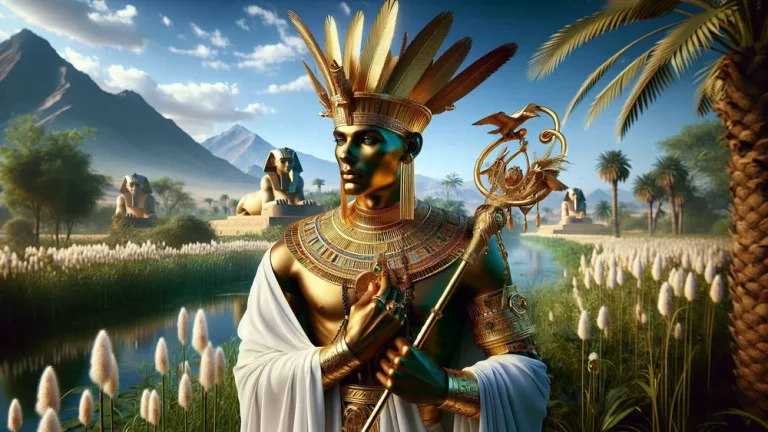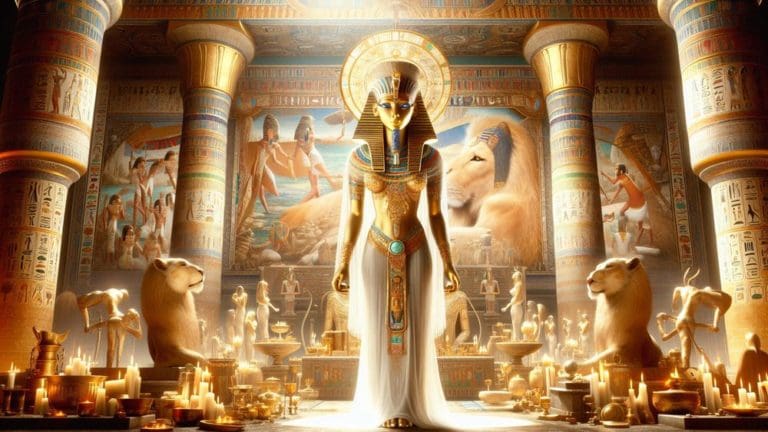Faro In Mythology: Legends And Stories From Ancient Cultures
For as long as stories have been told, people have imagined different beings that explain the world, the gods they worshiped, and what life means for human beings. These stories include figures related to light, wisdom, destiny, and gods, each linked to how their culture saw things. But where does Faro belong in these kinds of stories?
Key Points:
- There’s no strong historical proof that Faro was ever a real god or hero in ancient myths. Some think he might have been an idea instead of an actual figure.
- Different places might have used Faro’s name or something like it, but no famous myths from Egypt, Greece, or Mesopotamia talk about him as an important god.
- Some old legends talk about a being like Faro going on dangerous trips for wisdom, walking through death’s realm, or trying to take light from a sky god, but none are confirmed.
- If Faro did exist in myths, he may have been like gods of wisdom and destiny, such as Thoth, Hermes, or Odin, who were tied to knowledge, messages, or big changes in life.
- There’s no proof that people worshiped Faro with temples or prayers. If they did, it might have been in a way that didn’t leave many records.
- The name Faro could possibly come from words linked to lighthouses, kings, or fate, but language changes over time, so it’s uncertain.
- Whether Faro was a god, a wise being, or just another way to talk about fate remains unknown, since he isn’t clearly mentioned in written records from mythology.
Was Faro thought of as a god, someone who did great things, or more of an idea found in old writings? Some characters, like Zeus in Greek stories or Ra from Egypt, have many written records, while others are much less clear. They only appear in small pieces of text or have different meanings across different places.
Understanding Faro’s position in mythology doesn’t just mean looking at texts that mention him – it also means thinking about what he represents, how he may have influenced ceremonies, and whether he has similarities to other well-known legendary figures.
If we want to learn about Faro, we have to look at where he came from, what he was connected to, and whether there are any stories where he plays a critical part. To do this, we will check sources that can be trusted, including historical writings and literature that mention him.
Faro: Overview and Key Facts
| Category | Details |
|---|---|
| What Faro Meant in Myths | Whether Faro was thought of as a god, a hero, a symbol, or something else entirely. |
| Where Faro Might Have Come From | The ancient groups of people who may have believed in or talked about Faro in their traditions. |
| Connections to Other Figures | Other gods or legendary characters who had things in common with Faro, like those linked to light, wisdom, destiny, or change. |
| Mentions in Old Writings | Writings, stone carvings, or spoken accounts from old times that include Faro’s name or describe him. |
| Ideas Connected to Faro | Things Faro could have represented, such as light, fate, understanding, or helping others find their way. |
| Roles in Stories | Different things Faro may have done in myths, whether he was a ruler, a messenger, someone who caused problems, or a guide with special knowledge. |
| Worship and Practices | Ways people might have honored Faro, including temples, special words spoken in his name, or actions performed for him. |
| Similar Figures in Other Myths | Mythical characters from places like Greece, Egypt, Norse lands, or Mesopotamia who might have had traits like Faro. |
| Things Used to Represent Faro | Objects or images people may have associated with him, like a staff, a sun, or wings. |
| Later Influence | The ways Faro’s stories, if they survived, could have affected later religious ideas, myths, or storytelling traditions. |
Where Did Faro Come From?
Where Faro originally came from is something people have different ideas about. Some think he was part of older myths, while others believe he was a figure that changed depending on who told the story. Different groups from the past may have thought about Faro in different ways, depending on what they believed or what other figures they worshiped at the time.
If we want to figure out where Faro comes from, we need to check old stories, historical writings, and myths that were written down a lot. Looking at these may help us understand whether Faro was always the same in every place or if his role and meaning changed over time.
Faro in Old Legends and Stories
There are not many old stories that clearly talk about a figure named Faro, and no well-known ancient writings describe him as a critical god or hero. Unlike Zeus, Odin, or Osiris – whose names appear again and again in spoken stories, writings, and temple records – Faro does not seem to have much written history. Some believe that parts of Faro’s character may have still existed in early cultures but under different names.
There are mythological figures linked to knowledge, light, or what happens in life from Mediterranean and Near Eastern traditions, and some think these figures may have had similar meanings to Faro. But, since we do not have enough clear writings that confirm this, it is not certain whether Faro was a real legendary figure that people forgot over time or if he was just another version of characters that already existed in myths.
Some believe that if Faro really was part of mythology, he may have come from very old stories that existed before they were adopted by Mediterranean, Egyptian, or Mesopotamian beliefs.
If we look at myths, we can see that gods and mythological characters were sometimes changed by different civilizations – like how the Roman version of Hermes is similar to the Greek Hermes, or how the Egyptian god Thoth shares some traits with the Sumerian god Enki.
If Faro had been an actual god or a powerful being, then maybe people slowly changed the stories about him, or they blended his character into other, more well-known gods. Other ideas say that Faro might never have been a single god at all.
Some think he was just a word or an idea used to describe something, similar to how some old stories described “fate” or “destiny” as if they were people. Since there are no strong records about Faro, we cannot be sure.
There are no strong ancient records about Faro, and it is unclear if he was a forgotten legendary figure, a version of other mythological characters, or just an idea rather than a real god.
Faro’s Place in Egyptian Myths
Nobody has found clear proof that Faro was a god of his own in ancient Egyptian beliefs. But some people who study myths think there might have been gods in Egypt with traits that seem similar to what Faro represented. One possibility is Ra, who was thought to be the highest sun god, bringing light, creation, and order.
If people ever described Faro as being connected to light, leading others, or things having to do with the sky, then some might say this is like the way Ra was seen. Or maybe Faro was something like Thoth, the god linked to wisdom, writing, and special knowledge.
People described Thoth as being responsible for writing down what would happen in the universe and making sure everything stayed balanced. If Faro was ever seen as a figure with knowledge or the ability to predict things, then Thoth might have been the most similar god to him.
Since Egyptian mythology often combined gods, it’s possible that if Faro was ever part of their beliefs, then his identity may have been mixed with that of other gods, much like how Amon-Ra or Ptah-Sokar-Osiris were formed over time. Maybe that would explain why Faro’s name doesn’t really appear in written records today.
Faro in Greek and Roman Legends
No Greek or Roman myths clearly talk about Faro, at least in any known writings. But some people who study myths have noticed similar ideas between what people say about Faro and some gods from these traditions.
If Faro had anything to do with knowledge or light, then one way to think about him is by looking at Apollo, who was connected to the sun, prophecy, and wisdom. Apollo was thought of as a god who helped people and gave them true answers, and some think that matches certain things people have said about Faro.
Or maybe Faro had something to do with talking, leading others, or moving between places. If that was true, then Hermes, who in Roman mythology was called Mercury, might be the closest match. Hermes was the messenger of the gods, helping things move from one world to another, and he was also thought of as the protector of travelers, intelligence, and trickery.
Since myths often changed when different cultures met, it could be that Faro’s story became part of another god’s mythology. This kind of mixing happened before – ideas about Hermes shaped how Mercury was described, and Greek and Roman gods were sometimes influenced by beliefs from the East. If Faro was ever part of these myths, his name might have faded because his identity blended into gods that were more well-known.
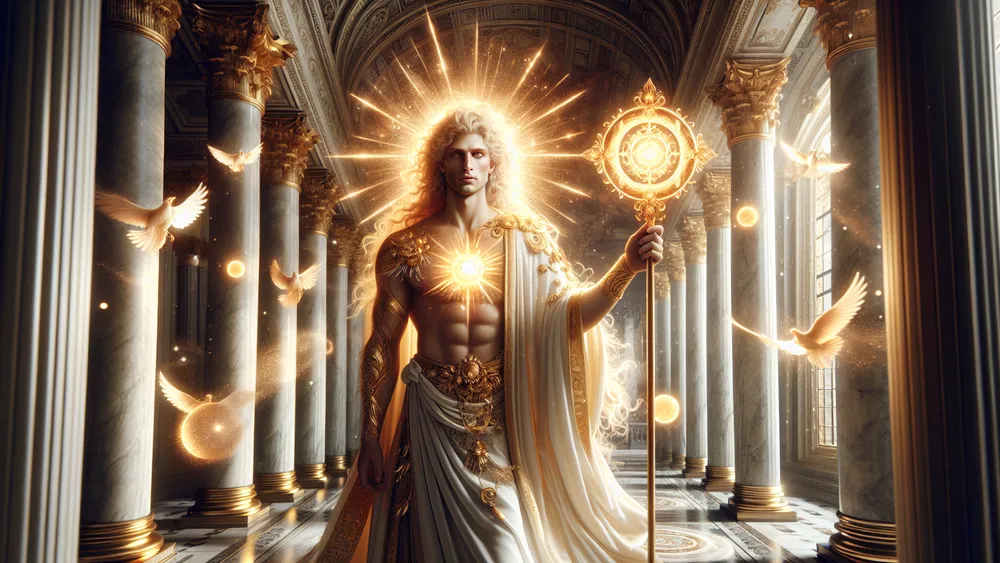
What Faro Stands For and Its Deeper Meaning
If we go past just where Faro might have come from in myths, we might understand its meaning better by looking at what it stood for in older customs and beliefs. What Faro really meant might become clearer if we look at how people thought of it in the past.
If we look into what it really meant, we might find out more about the ideas, qualities, and roles people connected to Faro in mythology. It had a purpose.
The Meaning of Faro in Ancient Times
There are no clear historical records that talk about Faro’s role in myths, though some people believe it stood for important things also found in many old religious ideas. In myths from many cultures, different gods and legendary heroes are often thought to represent big ideas like light, knowledge, religion, and destiny, because people believed these forces shaped their world. Faro might be one of them.
If people in ancient times thought about Faro as part of their religion, then maybe they linked it to one or more of these ideas. People have connected light with knowledge and wisdom for a long time. If Faro had something to do with this, then it could be compared to Ra in Egypt or Helios in Greece, both seen as sun gods.
If Faro had something to do with knowledge and learning, then maybe Thoth is the best comparison. Some might also think Faro had a link to destiny or prophecy, like the Greek Fates or other myths where gods decided what would happen in the future. Symbols related to these ideas might appear in ideas about Faro, if it was a real mythological figure.
If that were true, then things like the sun disk, the ankh (a sign of life in Egypt), or the scroll (connected to writing and knowledge) could possibly be tied to Faro.
If Faro was important in mythology, it might have stood for ideas like these:
- Light and Knowledge – Maybe connected to ideas about guidance or things above the Earth.
- Wisdom of the Gods – Linked to learning and special knowledge, like Thoth or Hermes.
- Fate and What Will Happen – Related to the future and how things are decided.
- Connecting Different Worlds – Thought of as a figure that linked different places or people.
- Power and Leadership – Possibly seen as in charge of something, like a god or king.
Was Faro a God or Something Else?
No well-known myths clearly say that Faro was a god. If it was part of old beliefs, then maybe people didn’t worship it as a true god. There is no proof. Maybe Faro wasn’t a god at all. It might have been an otherworldly being, or a person with unusual powers, or even a hero whose story picked up mysterious qualities as time passed. In myths, some figures appear to mix godly and human qualities.
Gilgamesh, the Sumerian king, was said to be two-thirds god, yet he still had to face death. Heracles (called Hercules by the Romans) had a godly father, but still had to prove himself before becoming one of the Olympians. If Faro had a similar story, people might have thought of it as a strong go-between rather than a god with complete power.
In some stories, certain rulers or wise people were seen as almost god-like. Egyptian Pharaohs, for example, were believed to be Horus in human form. If Faro was part of old stories, then maybe people respected it, not as a god who lived forever, but as someone with unusual powers – maybe it had great wisdom, could see the future, or had some kind of control over events.
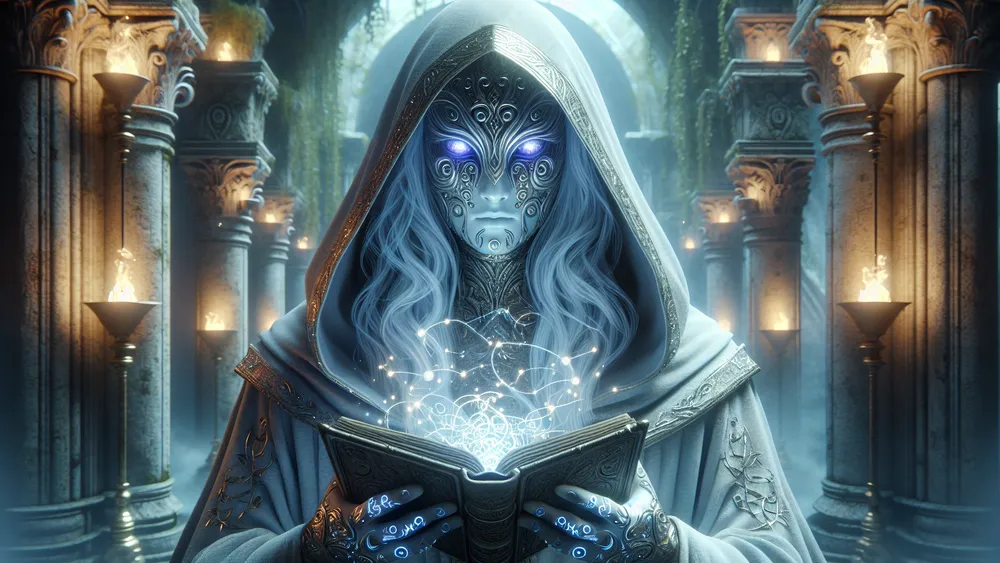
But, unlike major gods, it may not have been worshiped.
There is no strong proof that Faro was a god, but if it was part of old beliefs, people might have seen it as a powerful being with unusual abilities rather than a true deity.
Legendary Stories and Myths About Faro
People might have thought of Faro as either a god-like figure or just someone with mystical power, but either way, old stories and customs kept its story alive. Some still remember it. If we look at these old stories, we might see what Faro’s place in myths was, and how it was connected to gods, destiny, and the world of the dead.
The Story of Faro and the Sun God
Some stories say that Faro wanted wisdom and strength, but the only one who could give these things was the sun god, a mighty being tied to light and godly rule. Faro might have been a regular person or something more, but either way, he traveled on a dangerous trip to the sky realm where the sun god lived.
Many stories say the sun god was like Ra from Egypt or Helios from Greece – gods connected to powerful light that could both create and destroy. Faro, in some versions, wanted a small piece of this light to bring understanding to people, which is like what the Greek Titan Prometheus did when he took fire from the gods. But the sun god did not just agree.
Seeing this as either pride or something forbidden, the god made Faro pass a set of tests to decide if he was worthy. Not every story tells of the same trials. In some, Faro had to walk across a land of burning sand, where even one wrong step could destroy him.
Others say he had to carry a container filled with sunlight across a place of endless darkness, making sure no part of it disappeared. The most important part of the myth appears when Faro either bows to the sun god’s choice or refuses it, trying to steal the light instead.
Some stories end badly, with Faro falling, as if he tried to take what was not his. But other stories tell of Faro proving himself, gaining knowledge without becoming reckless. What the story means depends on how people see Faro. If he is a figure who wanted to bring wisdom to people, then the story is about giving something important to others, even when it is hard.
But if Faro is more of a warning, then the lesson is about not trying to go beyond what is allowed by the gods. Many old stories speak of people who challenge gods and suffer for it, and this one could be another example of that.
Faro’s Adventure in the Underworld
Some old stories tell of how Faro, who could have been a regular person or something greater, was meant to enter the underworld – a place where almost no one comes back. Different versions of the story give different reasons for this trip.
Some say Faro wanted knowledge that was not meant to be known, while others claim he had to bring back a lost soul that could not return alone. The land of the dead was not a simple place. Many old stories describe it as being ruled by a great god, much like Osiris in Egypt, Hades in Greece, or Nergal in Mesopotamia.
The way to the land of the dead had obstacles. One story tells of a river blocking the way, keeping the living and the dead apart. Another says there was a guardian who would not let anyone enter without paying something or passing a test of wisdom. Faro used either bravery or cleverness to trick the guardian, much like Odysseus did when he had to face difficult challenges.
Once inside, Faro met souls caught between existence and nothingness. Some whispered secrets. Others gave warnings. Some tellings say Faro had a goal like Orpheus, who tried to bring back someone he lost, while others say it was more like Inanna’s journey, which meant facing tests in the world of the dead, with each moment being a challenge to pass.
The ruler of the underworld gave strict conditions – maybe Faro could not speak, could not look behind him, or could not take anything without permission. Even with these warnings, the story appears to say that Faro reached the center of the land of the dead, where a final decision was made about whether he would win or fail.
People do not agree on how Faro’s journey ended. In some versions, he tricked death and returned with great knowledge or the soul he came for. In others, one mistake ruined everything – maybe he spoke when he was told to stay silent, or turned his head when he had to keep looking forward.
If that happened, he either became trapped or spent the rest of his life haunted by what he had seen. This is like sad endings from myths, such as when Orpheus lost Eurydice or Osiris could never return fully to the world of the living.
No matter the version, this story is about the thin line between life and death, being part of the way people have always wondered what comes after.
The Prediction About Faro’s Fate
Stories say there was a prophecy about Faro, and it said that his life would either change the world for the better or completely ruin a powerful civilization. Many old cultures had prophecies from gods, special people who could see the future, or strange powers that knew things before they happened. Old Greek, Norse, and Mesopotamian stories talk about this idea in many ways.
People told different stories about this prophecy. Some said Faro would remove a bad ruler and start a time of wealth and peace, much like how Zeus defeated Cronus. But other stories said his presence would bring down an empire, which is like the story of Paris and the fall of Troy. Leaders and priests, who feared this, tried to stop it. They failed.
Prophecies in myths did more than tell the future – they changed what people did. Some believed they could stop what was supposed to happen, but their actions made the prophecy come true instead. This fits with the old idea that no one can escape fate, whether they try or not. This prophecy appears to be how old cultures thought about fate.
Some say Faro accepted what was going to happen and made the choice himself, while others say he had no say in it at all. Either way, it is another example of a common myth idea – fate cannot be avoided, no matter what someone does.
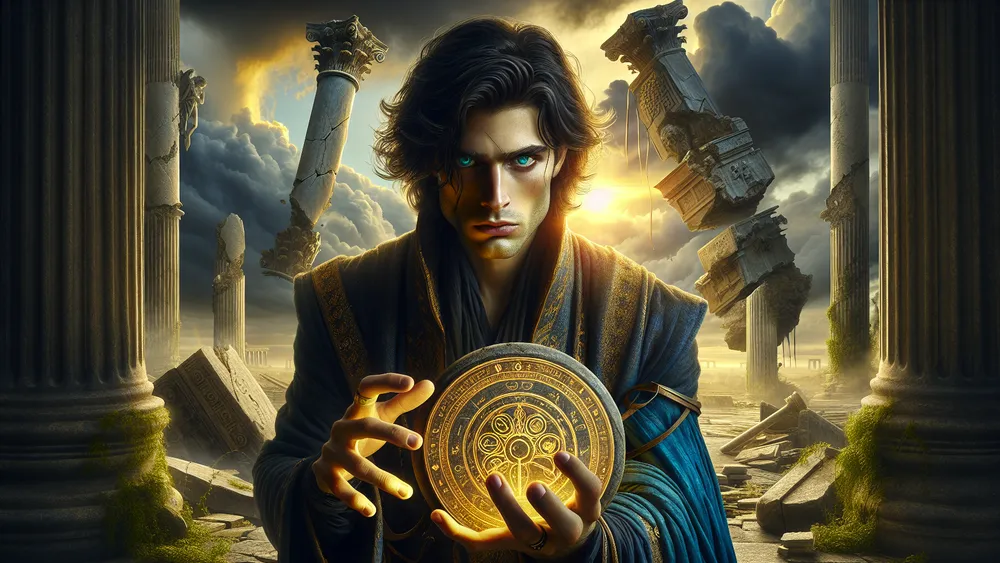
Other Mythical Beings Like Faro
In many old stories, Faro’s tale has details that match myths from different places. These connections help explain why certain ideas appear again and again. Stories about Faro have strong connections to myths told by different groups of people across the world. Some myths talk about fate, learning things, and big change, ideas seen in stories from many different times.
If we look at Faro next to other well-known myth characters, it helps to see where the story belongs. Some things are different, but many are the same. This is important.
Gods and Legendary Figures Similar to Faro
Throughout history, different cultures told stories of beings who had things in common with Faro. Some brought knowledge. Others moved between different places, acting as messengers. Some had roles in deciding fate, and others caused big changes. Whatever the case, people do not always agree on what Faro’s role was, but similar beings exist in myths from Egypt, Greece, Norse lands, and Mesopotamia.
If Faro is seen as a being connected to knowledge, then Thoth, the Egyptian god of wisdom and writing, seems very similar. Hermes in Greek myths, and his Roman version Mercury, led souls and carried messages, something Faro might have done if he was linked to prophecy.
Some stories describe Faro as a being of change, similar to Odin, who wanted wisdom and gave things up for it, or Trickster gods, who caused problems that made things different. Here is a table comparing myth figures to Faro. It lists what they are known for in their myths.
| Mythological Figure | Culture | Key Traits Similar to Faro |
|---|---|---|
| Thoth | Egyptian | God of knowledge, writing, and wisdom. |
| Hermes | Greek | Messenger, guide of souls, connected to movement and knowledge. |
| Mercury | Roman | Roman version of Hermes, tied to speed and intelligence. |
| Odin | Norse | Wanted wisdom, gave things up to gain knowledge. |
| Prometheus | Greek | Gave fire to humans, bringing them new knowledge. |
| Enki | Mesopotamian | God of magic, thinking, and making things, known for being clever. |
| Anubis | Egyptian | Helped with death, leading spirits where they needed to go. |
These beings, even though they are from different myths, appear to follow common ideas, including knowledge, change, going between places, and helping others.

Faro seems similar to mythological figures from different cultures, who are linked to knowledge, change, movement, and guiding others.
How Faro Compares to Hermes, Anubis, or Odin
In myths, some gods had things in common with Faro. Looking at Hermes, Anubis, and Odin, it is possible to see places where their roles were similar. Faro might have been thought of as someone who passed messages, helped spirits after death, or even searched for deep knowledge – things these gods also did in different ways. Hermes had a role in leading spirits to the world of the dead.
Maybe Faro did, too, if people thought of them as being part of what happens after life ends. Since Hermes also carried messages between gods and people, Faro could have been seen in a similar way if communication or prophecy was part of his story. Anubis, an Egyptian god connected to death, helped souls move safely through the world of the dead.
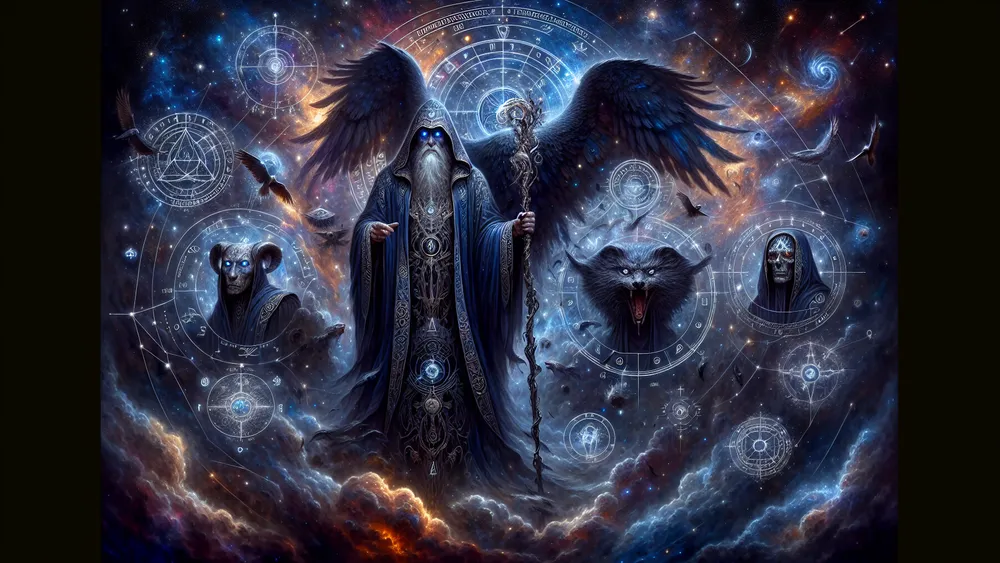
If Faro was believed to do something like that, then he would be connected to gods that make sure spirits get where they need to be after life. Odin is a vital god in Norse myths, and people say he always looked for knowledge. He even gave up one of his eyes at Mímir’s well to learn more.
If people thought of Faro as someone looking for knowledge, then there would be ways in which they were like Odin, who tried to learn more and sometimes had to lose something to do it.
These connections make it seem like Faro, just like many other gods in myths, had common ideas connected to them, including learning things, moving from one place to another, and dealing with gods.
How Faro Shaped Rituals and Ancient Practices
In many places, gods and legendary beings led people to create ways of worshiping. They were deeply connected to sacred acts and long-held ways of doing things. Some traditions lasted for a long time. Others changed. Beyond just myths, Faro may have mattered in other ways. If Faro was more than just a story, then this being may have had an effect on rituals and what people believed in old societies.
Ancient Traditions and Rites Honoring Faro
People in the past may have worshiped Faro. If so, the way they did it must have matched what people thought of them, just like how gods of wisdom, fate, or powers connected to the sky were honored in many places. But no temples or writings clearly made for Faro have been found.
Even so, beings seen as similar, like Thoth in Egypt or Hermes in Greece, had structured ways of worship, including gifts, ceremonies, or meaningful actions.
If Faro had anything to do with wisdom or fate, then people may have used ceremonies to ask for help, knowledge, or safety. Across different places and times, many gods were worshiped in ways connected to what they ruled over. Some involved speaking certain words, giving gifts, and walking in ceremonies to call on their strength. The following are possible ways old societies might have worshiped Faro if this being mattered in their religion:
- Chants and Prayers – Words spoken to ask for wisdom, safety, or help from a higher power.
- Sacrificial Offerings – Giving away food, incense, or valuable things to get something in return.
- Ritual Processions – Walking through special places in an organized way to respect the being.
- Sacred Text Inscriptions – Writing down prayers, signs, or future events on walls or scrolls.
- Speaking with Priests or Seers – Asking those who understood the unseen for visions or answers.
A lot of old gods were worshiped in ways that followed what they were connected to. If people thought of Faro in the same way, then these acts might have been how they showed their respect.
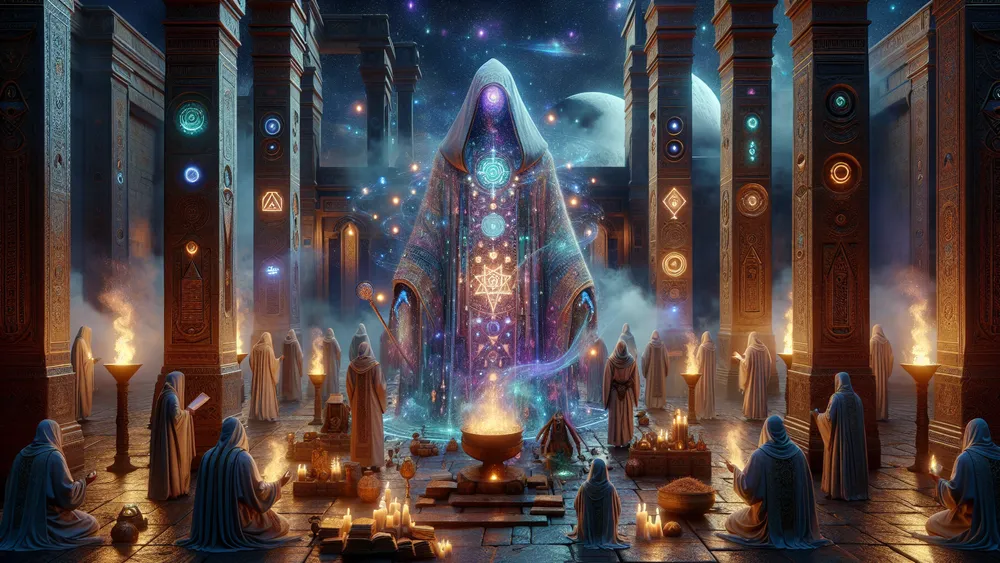
The Meaning of Faro’s Name Across Cultures
The name “Faro” may come from different places, and it depends on which culture used it. Words often had meanings that changed over time, based on their origins and how people understood them. For the Greeks, the word Pharos (Φάρος) meant a fire tower, like the famous one in Alexandria.
That lighthouse stood for bringing light and helping people find their way, which could mean that Faro had something to do with knowledge or vision from the gods. If the name came from Semitic languages, then it might be tied to words for knowing things or predicting events, as seen in many Middle Eastern myths.
In Egypt, there is no clear record of the name Faro, but the way words were used back then might suggest a connection to pharaohs and their title (pr-ˤ, which means “great house”). Kings who carried that title were often thought of as having a link to gods.
In Norse or German(ic) languages, words with “far-” or “fahr-“ had meanings related to travel, fate, or otherworldly help. If Faro connected to these, it might have meant something about beings who moved between places. Because ancient languages changed over long periods of time, people may understand this name in several ways based on different myths.
Faro’s Place Among the Gods
In myths, gods were part of an organized group. They connected with other gods, and the way they did this matched what they were known for. Those in charge of the sky, wisdom, or fate each had their own role. This was common. Looking at old gods, Faro might have had an important place.
If Faro had an important place with the old gods, thinking about how this being compared to gods of wisdom, fate, or the sky would matter. Some gods like Faro were there from the very beginning. Others carried messages. A few were in charge of understanding and fate.
For anyone wanting to understand where Faro might belong in African myths, there is more information available in a full list with all African Gods that gives details on many divine beings and what they meant in different cultures.
FAQs
1. Was Faro a real deity in ancient mythology?
Whether Faro was a real deity in ancient mythology is not supported by any known historical or mythological texts from major civilizations.
2. What civilization worshiped Faro the most?
The civilization that worshiped Faro the most is not documented in any known ancient sources, as there is no verified record of Faro being a widely venerated deity in historical mythologies.
3. Are there modern traditions that originate from Faro’s myths?
Modern traditions that originate from Faro’s myths are difficult to trace, as there are no definitive historical records confirming Faro’s direct influence on contemporary religious or cultural practices.
4. Which mythological characters share the most traits with Faro?
Mythological characters that share the most traits with Faro often embody wisdom, guidance, and a connection to both the mortal and divine realms.

